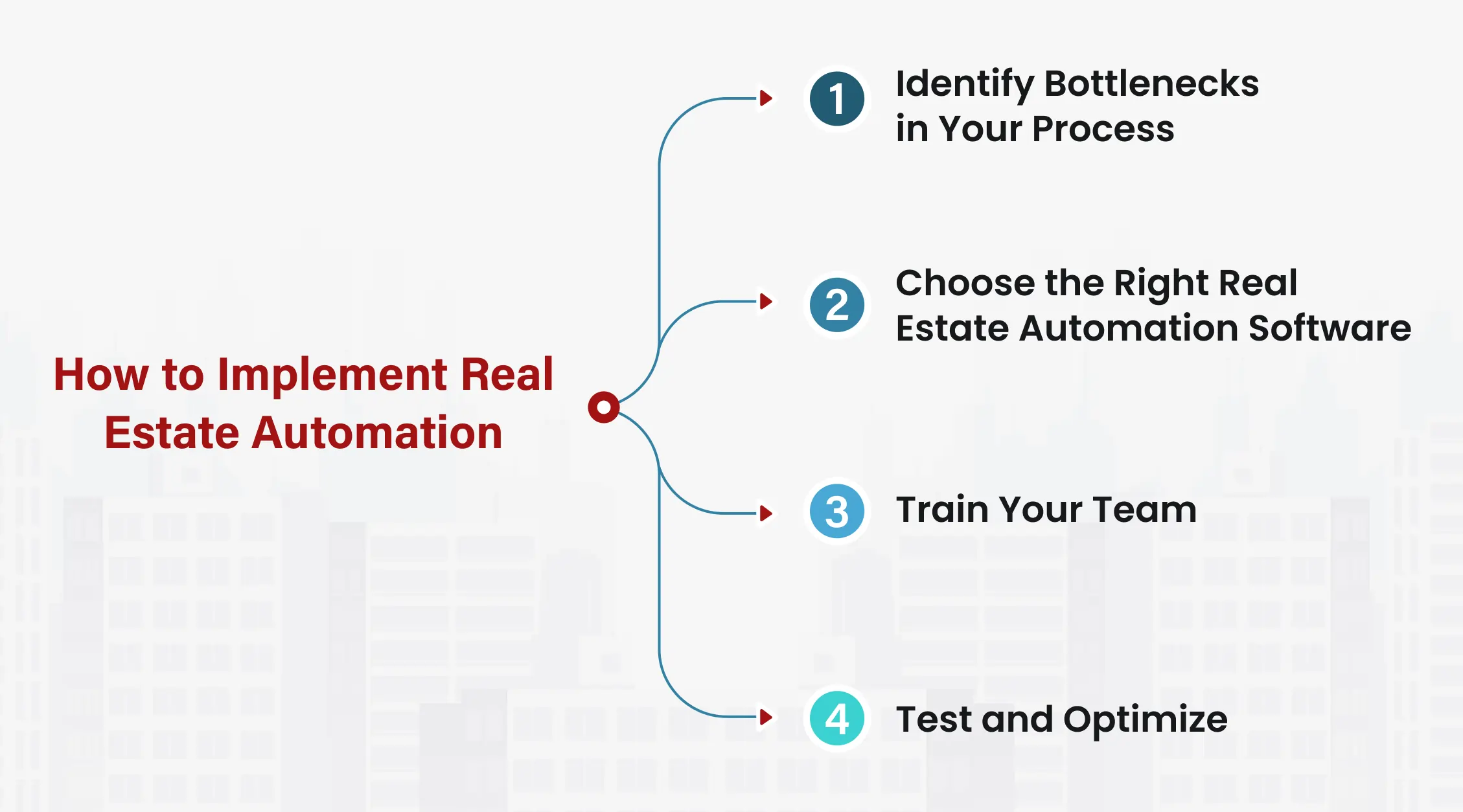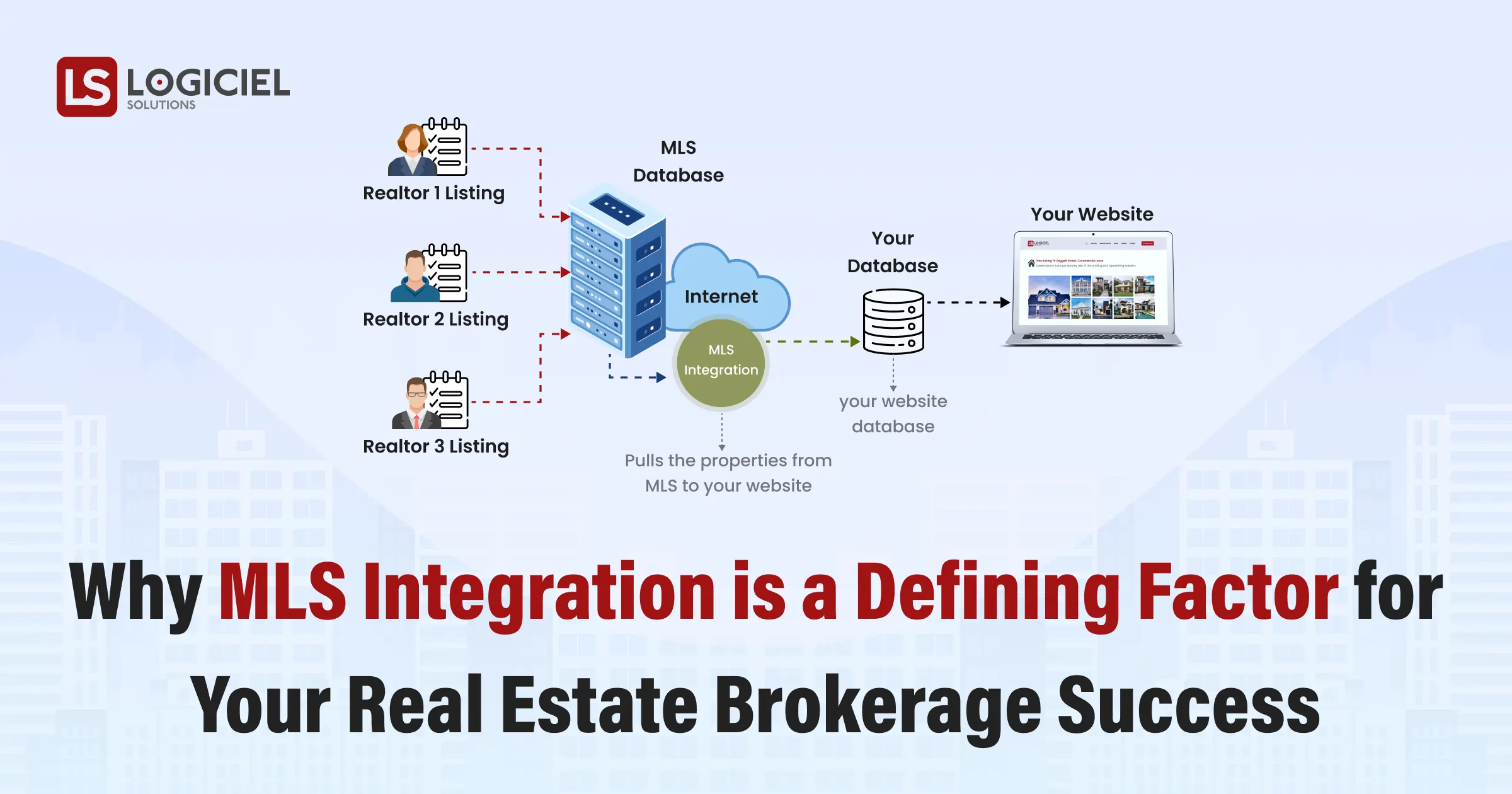Automation is revolutionizing industries across the board, and real estate is no exception. With the right tools and systems, real estate businesses can drastically cut down manual tasks, streamline operations, and boost efficiency.
In an industry where time is money, Real Estate Automation helps professionals focus on what they do best, closing deals and growing their business.
In this detailed guide, we will explore how you can automate various real estate processes, backed by real-world insights and the benefits you can expect when done right.
The Growing Role of Automation in Real Estate
According to a 2022 report by the National Association of Realtors (NAR), 53% of real estate firms are already using some form of automation in their day-to-day operations. This trend is only expected to grow, especially as the demands for real-time data, faster transactions, and seamless client experiences continue to rise.
Real Estate Automation helps businesses save time, reduce operational costs, and minimize errors while improving client relationships. Whether you’re managing hundreds of property listings or nurturing leads, automating repetitive tasks can make a substantial difference.
Key Real Estate Processes You Can Automate
1. Customer Relationship Management (CRM)
Real estate thrives on relationships, and automating CRM can significantly enhance how you manage them. Advanced CRM platforms like Salesforce, Zoho, and HubSpot allow real estate professionals to automate lead tracking, client interactions, and follow-ups.
A case study by Salesforce found that real estate firms using CRM automation experienced a 45% increase in productivity and a 30% boost in lead conversion rates. Automating lead nurturing through personalized email workflows helped agents respond faster and focus more on building relationships than administrative tasks.
Key Automations:
- Automatically assigning leads to agents based on criteria like location, budget, and preferences.
- Scheduling and sending follow-up emails, texts, or reminders.
- Tracking every interaction and maintaining a centralized history of client activity.
2. Lead Generation and Nurturing
Lead generation is one of the most resource-intensive tasks in real estate. Real Estate Marketing Automation tools can streamline how you attract, qualify, and nurture leads. From setting up automated drip campaigns to managing inquiries from your website, automation ensures you stay engaged with potential buyers and sellers.
Real Geeks, a real estate marketing and sales solution, allows agents to automatically capture leads through online ads, chatbots, and forms. It then integrates these leads into a CRM, where agents can nurture them without having to manually follow up. This process has led to conversion rate improvements of up to 60% for many real estate professionals.
Key Automations:
- Automated chatbots on websites for initial inquiries.
- Email drip campaigns based on client behavior (e.g., properties they viewed).
- Automated social media ad campaigns that track engagement and capture leads.
3. Property Management
Property management, particularly for firms managing multiple properties, can benefit tremendously from automation. Tools like AppFolio and Buildium are designed specifically for property managers to automate tasks like rent collection, maintenance requests, tenant communication, and financial reporting.
AppFolio reports that property managers using their platform save, on average, 65 hours per month. By automating maintenance workflows, rent collection, and tenant communication, property managers can handle a larger portfolio without increasing administrative staff.
Key Automations:
- Automating rent reminders and payment collection through direct bank transfers.
- Managing maintenance requests with automated ticketing and contractor assignment.
- Generating monthly reports and financial summaries with the help of Real Estate Marketing Automation.
4. Client Communication
In an industry where response time is critical, automated communication tools can help you stay connected with clients. Chatbots, automated SMS follow-ups, and email workflows ensure that clients get the information they need when they need it.
Companies like BombBomb automate personalized video emails to enhance client communication. Agents can automate follow-up videos when a property is listed or send personalized birthday greetings to clients, deepening the relationship without additional manual effort.
Key Automations:
- Chatbots to handle basic queries on listings, appointments, and more.
- SMS reminders for property viewings, open houses, or document submissions.
- Email workflows for nurturing both cold and warm leads.
5. Document Management and E-signatures
Real estate transactions involve extensive paperwork, which can be both time-consuming and prone to errors. By automating document generation, signing, and storage, real estate professionals can save hours and reduce delays.
DocuSign has emerged as the go-to e-signature tool for real estate transactions. Firms using DocuSign report an average reduction in document turnaround times by 75%. Automating document signing not only speeds up deals but also ensures compliance and reduces the risk of errors.
Key Automations:
- Auto-generating contracts and disclosure documents based on templates.
- Automated e-signature requests for clients and agents.
- Centralized storage of signed contracts for easy retrieval and compliance.
How to Implement Real Estate Automation

1. Identify Bottlenecks in Your Process
The first step to automating is understanding where your processes are slow or inefficient. Are you spending too much time on data entry, following up with leads, or managing property listings? Map out your workflows and pinpoint the areas that are most time-consuming.
2. Choose the Right Real Estate Automation Software
You can reap the maximum benefits of automation only when you have the right tools. For CRM, tools like Zoho or HubSpot are excellent choices. For property management, look into solutions like AppFolio or Buildium. Research tools based on your specific needs and scalability.
3. Train Your Team
Automation is only as good as the people using it. Ensure that your team understands how to use these tools and how they can benefit from automation. Schedule training sessions and encourage a culture of tech adoption.
4. Test and Optimize
When implementing automation, it’s crucial to test your workflows to ensure everything works seamlessly. Start with smaller processes, then expand automation as you refine your system. Monitor performance and make adjustments as needed.
The Benefits of Real Estate Marketing Automation
1. Time and Cost Savings
By automating routine tasks like data entry, client communication, and document management, real estate professionals can significantly reduce their workload. This allows firms to handle more clients and properties without increasing manpower. According to McKinsey, automation can reduce operational costs by up to 30% across industries.
2. Faster Response Times
Automation enables real estate professionals to respond to inquiries faster, improving client satisfaction and conversion rates. For example, automating lead follow-ups ensures that no inquiry is left unanswered, even outside working hours.
3. Improved Data Accuracy
Manual processes are prone to errors, especially when it comes to data entry. Automation reduces the risk of mistakes, ensuring that information is recorded accurately and consistently across systems.
4. Better Client Experience
Today’s clients expect quick, efficient service. Automating client communication, from initial inquiries to post-transaction follow-ups, ensures a seamless experience. Satisfied clients are more likely to return for future transactions and refer others.
5. Scalability
Automation enables real estate firms to scale their operations without proportional increases in administrative work. As your business grows, automation can help manage more leads, properties, and transactions efficiently.




